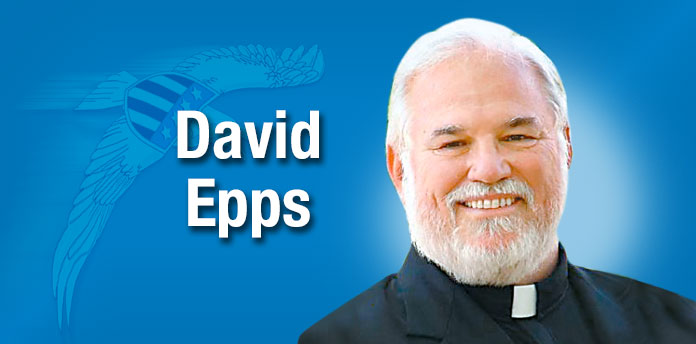I cannot begin to count the number of times over the years that I have heard someone say, “I will never forgive them for (fill in the blank).” Most of the time I can understand how they feel that way, but I am also saddened by the comment because I know that the person has incarcerated themselves in a prison of their own making. The good news is that they have the key to unlock the door, if they will only use it.
If anyone is criticized more than clergy, it’s politicians and police officers. Having been in this calling for over fifty years, I have developed a thicker skin than I had when starting out. Nevertheless, no one relishes being the target of someone else. But, for the three professions mentioned above, it’s part of the job description.
About 26 or 27 years ago, I became the target of someone who launched a battery of criticism over a prolonged period of time. To my knowledge, I had never harmed this person, not had I spoke evil against this person. The individual was not part of the church I served at the time, so I never fully understood the motivation. Yet, in private and in public, the attacks were unrelenting. The person even assembled a dossier on me and, I assume, shared it with other people. I would like to say I was unaffected by it all but that would be untrue.
However, one night, after having my person denigrated in a public meeting, I was angry. On the way home, and alone in the car, I expressed my anger to God. After a few miles, I knew what I had to do. I pulled over in a parking lot at 10:30 at night and forgave the person for all that had been done, for what had happened that evening, and for what was likely to come my way in the future.
Did I feel like doing that? No, certainly not. However, I knew that to harbor unforgiveness was going to hurt me more than it would the other person. I made a decision to do it, even though my emotions felt otherwise.
Someone one said, “Unforgiveness is the poison we drink in the expectation that someone else will die.” Unforgiveness brings with it a coldness, a hardness, and a deepening of resentment. I should know. In my early ministry, I held on to unforgiveness in at least two cases that robbed me of peace and well-being. In one instance, I held on to it for ten years. Once I let it go, it was like a hundred-pound weight had been lifted from my shoulders. I don’t ever want to be there again.
For Christians, forgiveness is not an option. In the Lord’s Prayer, it is understood that our forgiveness is dependent on how we forgive others. But what about justice? The act of forgiveness transfers responsibility of justice and retribution, if any is due, to God. “Vengeance is mine, says the Lord.” It means that I let go of my desire to strike back and entrust it all to God.
I have tried to keep a short account as far as offenses against me go. I was, however, surprised last week. I was in a meeting in Alabama, and I came to the realization that I was so angry at a particular individual that it was affecting my emotional and spiritual life. So, I decided to make a list of the people I still had resentment against.
I thought there might be one or two more but, as I gave it some thought and made a list, I discovered there were fifteen people on the list. Most were from long ago, but I was disappointed in myself that I had not recognized that I carried resentment through the years. So, I forgave them for any perceived offenses and gave it all to God. I let go.
There is a freedom and a clarity of heart and mind that comes with truly walking in forgiveness, “But you don’t know what he / she has done to me!” But it doesn’t matter, you see. The purpose of forgiveness isn’t to let them off the hook. It’s to open our own prison door and forgiveness is the key.
In high school, I was a sophomore when, for no apparent reason other than he was an upperclassman and he could, a kid punched me hard in the face. I didn’t retaliate because I didn’t want to get kicked off the football team. I stood there, my face burning with anger and shame, as he walked away laughing.
Decades later, when people asked me, “If you could go back to high school, what would you do differently?” I answered, without hesitation, “I’d smash Randy Martino’s face in.” Randy (not his real name), I am sure, never even thought about me over the years. Yet here I was in my own prison of unforgiveness for over thirty years! Until I used the key.
Is it easy? Probably not. But the prison is far more uncomfortable than letting the anger and resentment go and stepping out into freedom. Don’t hang on to unforgiveness. It is a destroyer. Use the key. Let it go.
[David Epps is the Rector of the Cathedral of Christ the King (www.ctk.life). Worship services are at 10:00 a.m. on Sundays but is also live streamed at www.ctk.life. He is the bishop of the Diocese of the Mid-South (www.midsouthdiocese.life) and may contacted at [email protected].]













Leave a Comment
You must be logged in to post a comment.